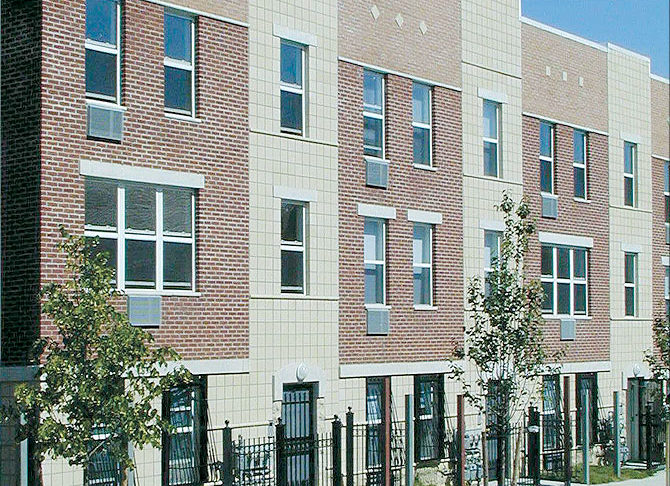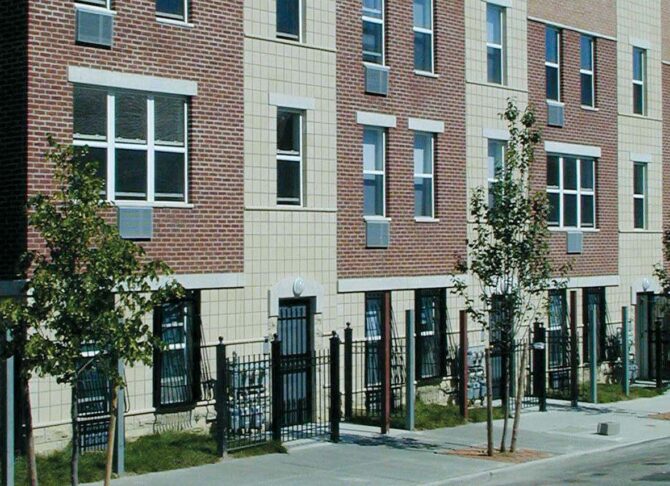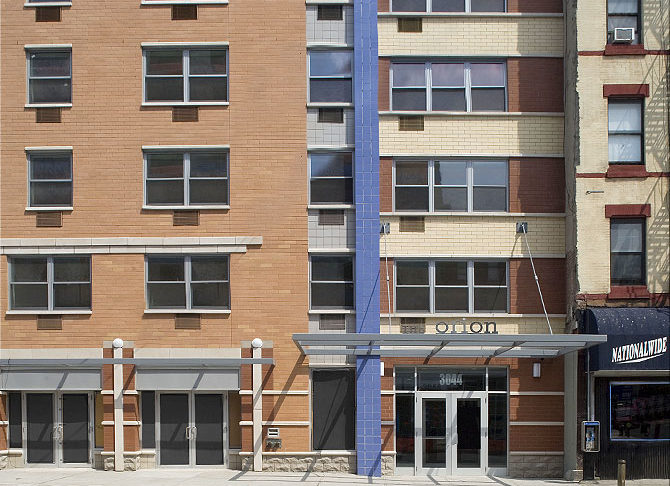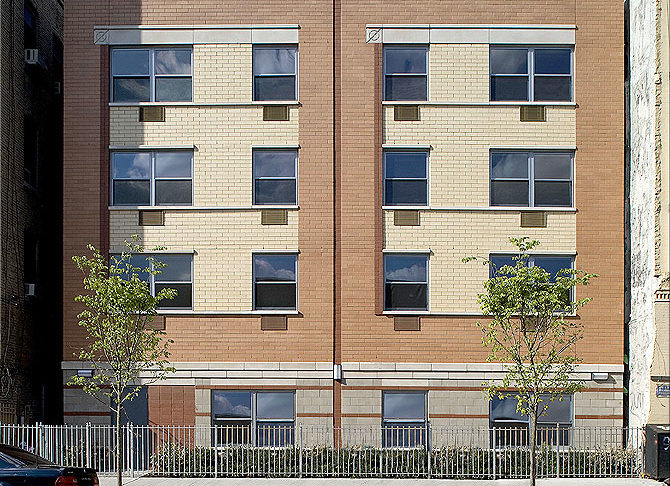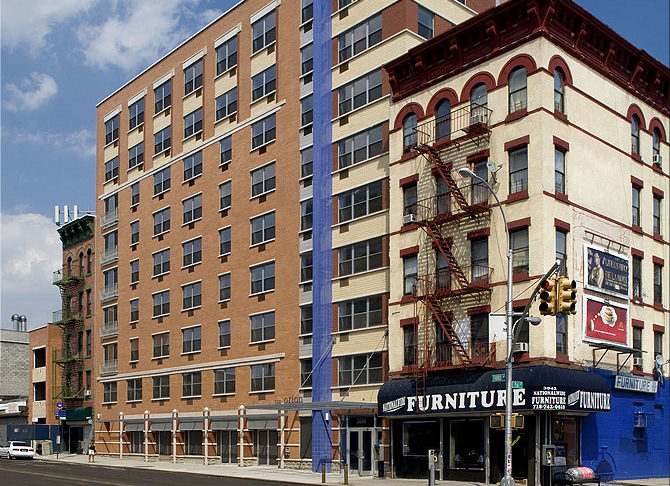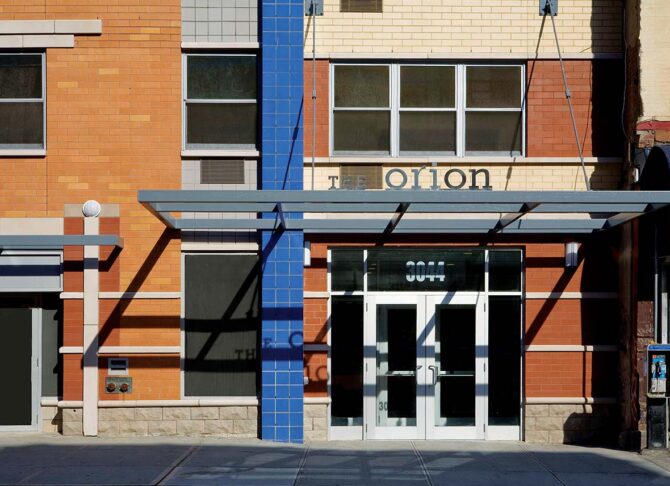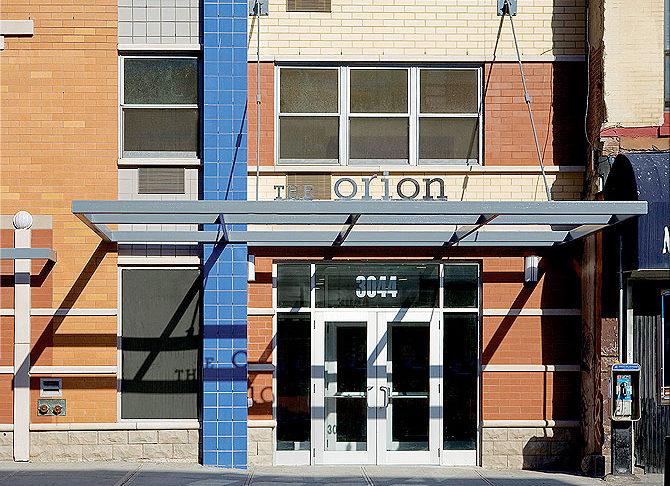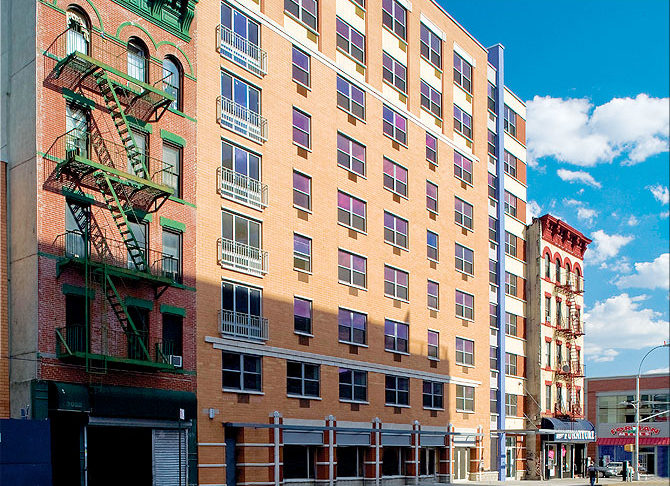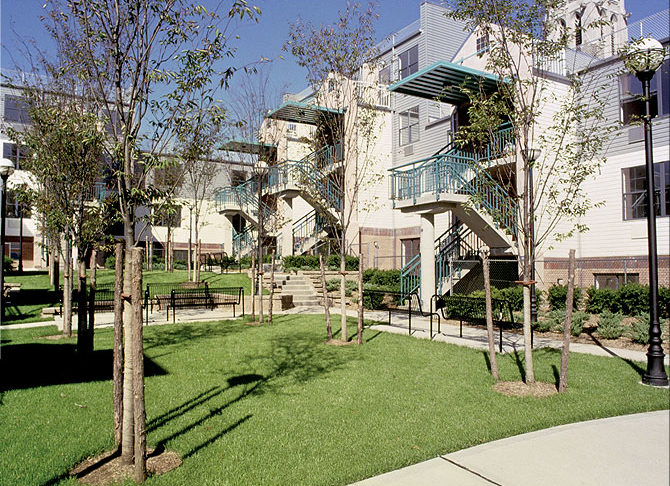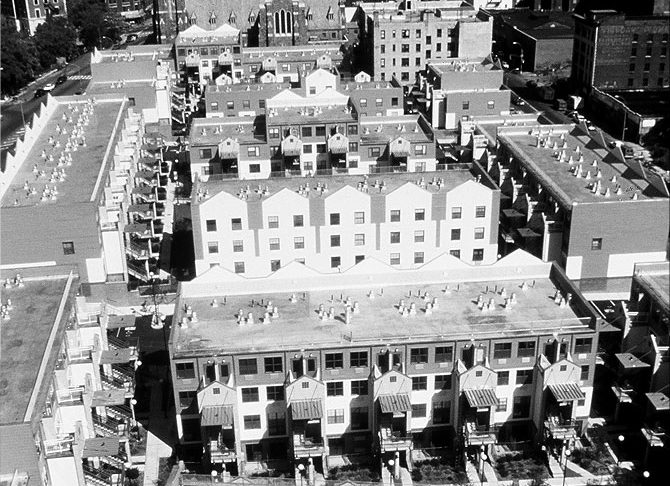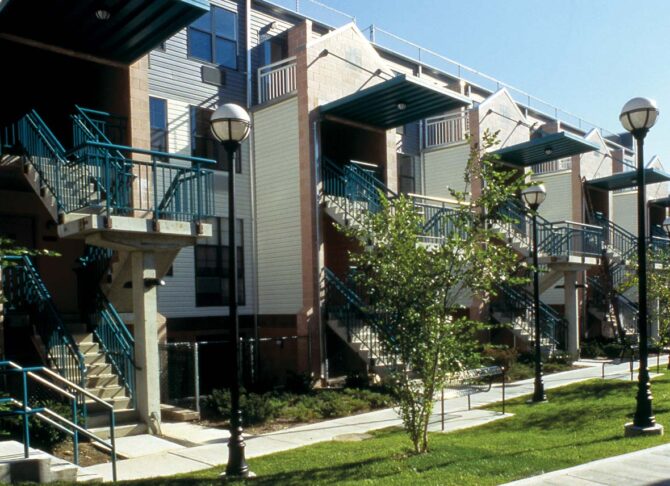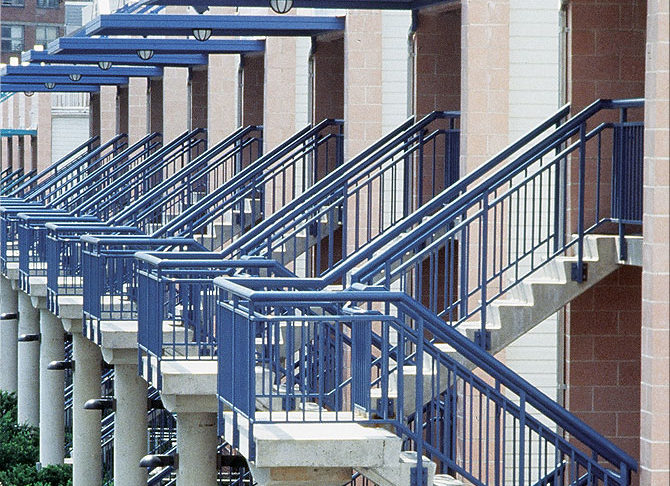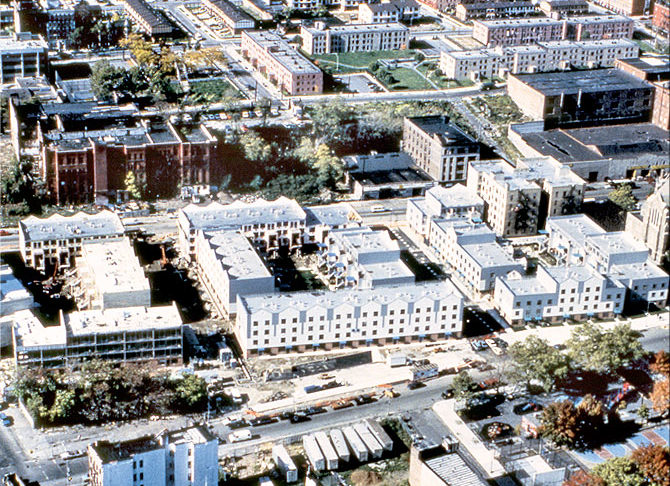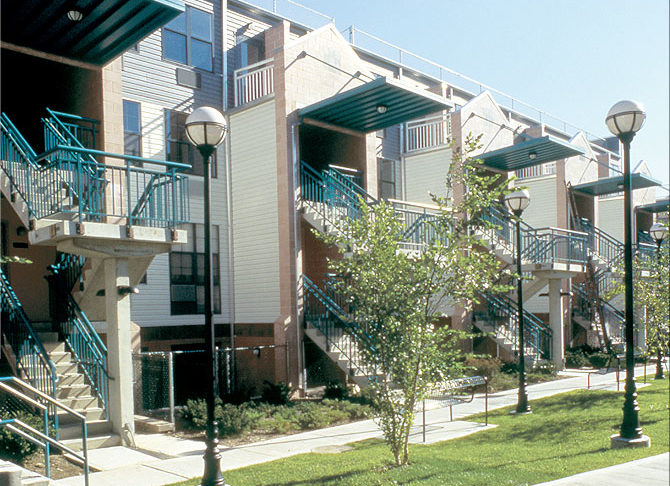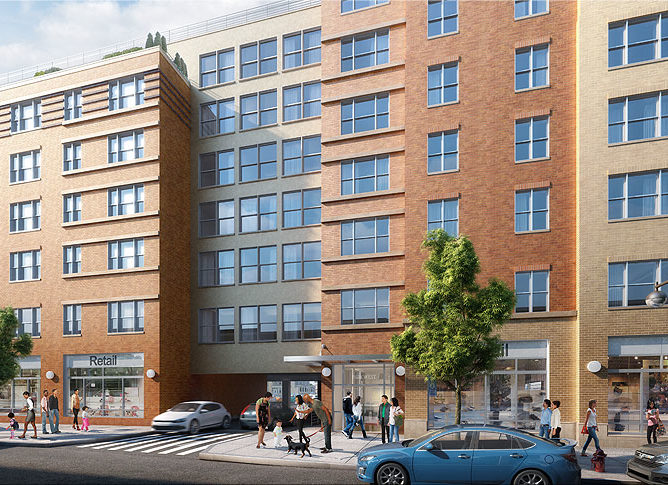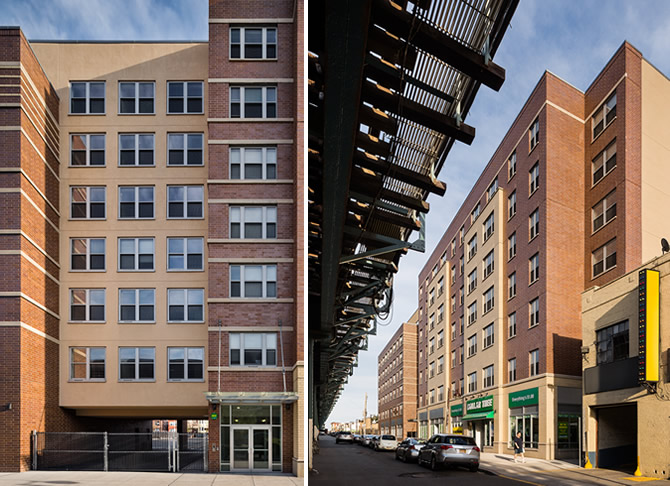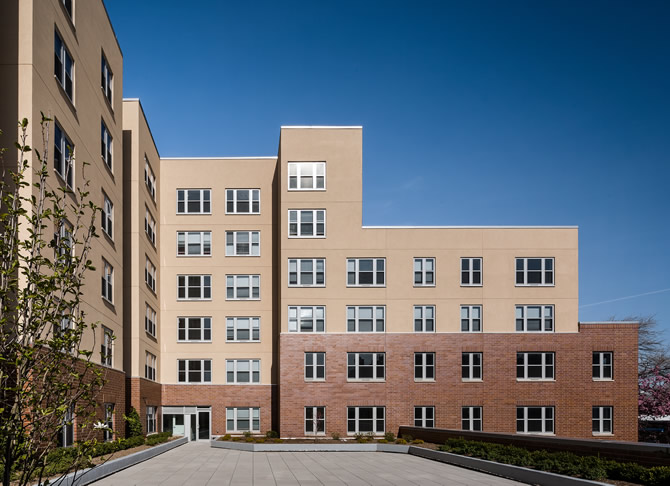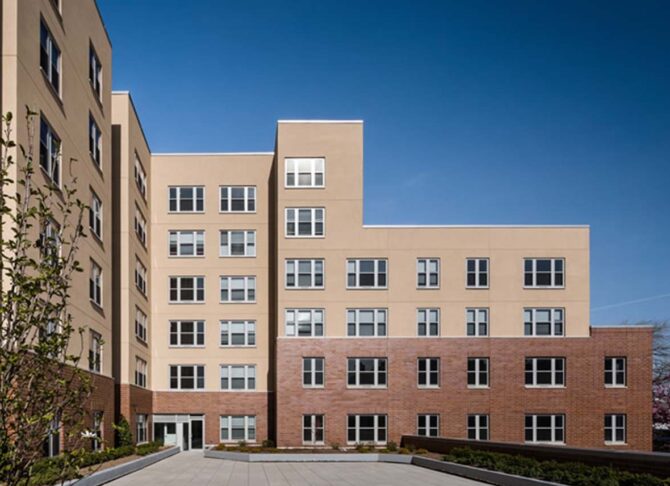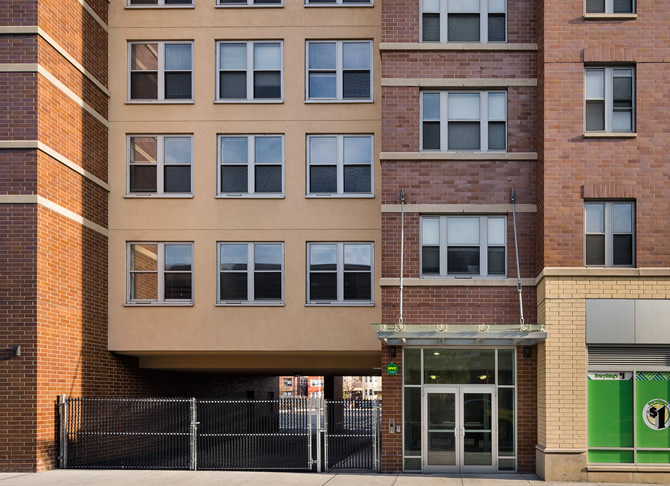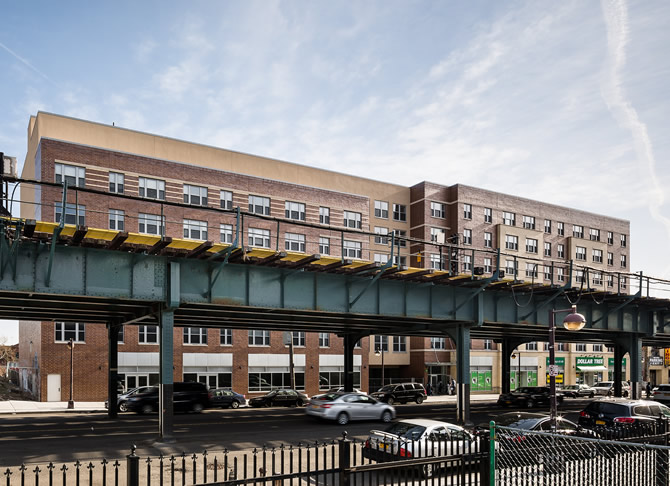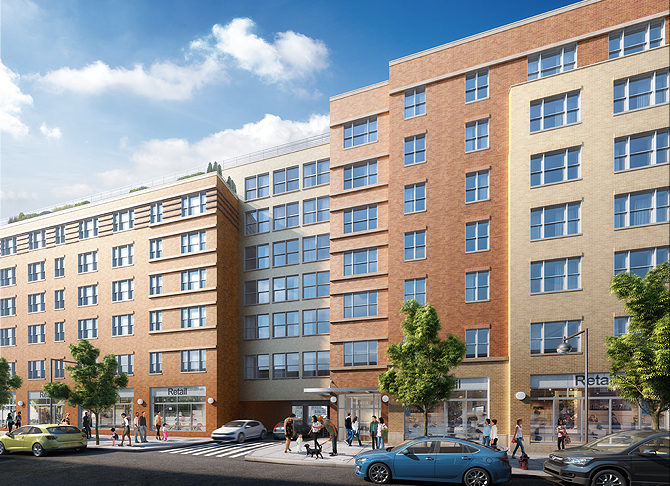Developed in conjunction with the community organization We Stay/Nos Quedamos Committee, Plaza de Los Angeles received the Boston Society of Architects A/AIA New York Housing Design Award in 2000. These 35 three-family homes continued the tradition of homeownership in the Melrose neighborhood and sustained Procida’s commitment to affordable housing in the community.
Category Archives: Development
The Orion
This 61-unit, 72,000-square-foot condominium, developed as part of the City of New York’s Department of Housing, Preservation and Development’s Cornerstone Program, was developed in conjunction with the community organization We Stay/Nos Quedamos Committee. The building contains approximately 5,000 square feet of retail space and six three-family homes.
Melrose Court
Developed from 1991 to 1994 by Procida Development Group and constructed by Procida Construction Corp., the 256-unit, award-winning Melrose Court was the cornerstone of the Melrose Commons Redevelopment Plan and the standard of affordable housing developments in the Bronx. Developed as part of the New York City Housing Partnership’s Homeowners Program, Melrose Court departed from lower-density single- and two-family home developments and moved the program to a higher-density, condominium structure. For its excellence in design, Melrose Court received the Pillars of the Industry Award for the Best Affordable Housing Development in the Country from Multi Family News.
Park West Apartments
The recently completed Park West apartments is a 7 story, 134-unit affordable housing development located in the Parkchester neighborhood of the Bronx, within walking distance to the 6 train and Parkchester Circle. The development boasts a new Dollar Tree, medical offices and a 100 car attended parking facility on the ground floor, adding to the bustle of busy Westchester Avenue.
Financed through the New York City Department of Housing Preservation & Development (“HPD”) / The New York City Housing Development Corporation (“HDC”) Low Income Affordable Marketplace Program (“LAMP”), the units are rented to formerly homeless households and to households earning 60% of the Area Median Income.
